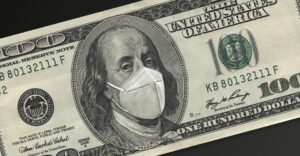The virus that upended just about everything early last year is unfortunately still with us and probably nothing will really go back to ‘normal’ until the current vaccine roll out is near complete. It’s not just Massachusetts, of course. The virus has seriously affected every aspect of human life, including the way businesses operate, across all 50 U.S. states and right around the world. The prevailing opinion from health authorities and epidemiologists is that things are going to get worse before they get better. There has been a surge in Covid cases in Massachusetts and it will take several months before the number of vaccinated people achieves anything like the desirable percentage for ‘herd immunity’ where the numbers of the vaccinated significantly reduce the likelihood of others being infected.
Massachusetts business owners need to keep a close eye on local, state and federal recommendations and directives as the year progresses as they can change quickly. No business owner should assume things are going to go back to normal any time soon, so need to respond to the prevailing conditions, not just to ensure their businesses remain viable in these troubling times but also to maintain legal responsibility for their employees and any clients or customers who use their business.
Recommendations or directives?
Many statements made by the state government or Governor Baker’s office are basically common sense recommendations to business owners as conditions change throughout the pandemic. Recommendations are not mandated directives, so if you fail to follow through with a recommendation, you risk raising the ire of your employees and possibly the public, but you won’t be penalized for it.
Examples of recommendations that have been made since the state ‘opened up’ last year include:
- Social distancing: employees and the public to maintain social distancing of 6 feet apart as much as possible;
- Working from home: if your business can continue with employees working from home, then this is the ideal option during the pandemic; this also means canceling or rescheduling conferences, tradeshows, work related travel etc.;
- Provision of cleaning facilities: employees should be able to clean hands easily;
- Personal protective equipment of an appropriate kind should be encouraged where desirable although the provision of this by the employer has not been mandated unless in certain situations such as medical facilities;
- Ensure surfaces are properly cleaned on a daily basis;
- Offer or arrange alternative work arrangements for at risk employees.
Covid-19 and workers compensation
Leaving aside the specific risks that many frontline workers face, particularly health workers, the pandemic introduces potential liability for businesses if any of their employees contract Covid-19 while at work because of an infected surface or contact with an infected employee(many people are asymptomatic so may go to work not realizing they are infected). Claims under workers’ comp. rules must be able to show that the employee became sick because of a workplace exposure.
This does reinforce the need for employers to reduce their risk of exposure by commonsense Covid safe practices at work. The other potential legal liability may arise from accidents and injuries that occur because an employee is working from home with unfamiliar or unsafe equipment. Again prudent businesses will avoid exposure to legal risk as much as possible by careful planning whenever employees are asked to work from home.
Rules if an employee becomes infected with Covid-19
Any employee who has symptoms of Covid-19 or has been tested positive for the virus should self isolate at home and not go to work. But what should the employer do? Both state and federal rules state that employers must allow a sick or infected worker time to recover at home without being fired. The employer must guarantee that the worker can return to their job after recovering and have in place protocols to deal with employees who return after recovering from the disease. The only exceptions are small businesses that have to close or lay off staff because their operation or commercial viability has been severely affected by the pandemic or restrictions imposed because of the pandemic.
Families First Coronavirus Response Act
Not long after the pandemic began, the federal government initiated the mandating of an emergency sick leave payment of two weeks at the regular rate of pay for all businesses with fewer than 50 employees. The law change was called the Families First Coronavirus Response Act, and was an extension of the existing Family Medical Leave Act (FMLA). Employers were expected to pay up to two weeks extra sick pay in addition to the normal sick pay benefits available but could recover the extra payment through a tax credit equal to the amount paid out. However, the situation regarding emergency sick pay changed at the end of 2020.
The Consolidated Appropriations Act, 2021was signed off by President Donald Trump on 27th December 2020 after it had passed through Congress. This extends the tax credits available for emergency medical leave through 31st March 2021. The sick pay is no longer mandated but is now a voluntary arrangement. Employers can choose to pay extra sick leave to an employee if the employee develops symptoms or becomes sick and still recover the payment through a tax credit.
Mask wearing order issued
Governor Baker issued a mandate on November 6th 2020 for masks to be worn in all public places, inside or outside, even if 6 feet distance from each other can be achieved. The exceptions are children of between 2 and 5 and adults with a specific medical condition or disability that makes it unsafe for them to use a mask. Businesses are legally allowed to ask employees to provide proof that they are exempt from wearing a face mask.
Latest state mandates applicable to Massachusetts businesses
Due to the surge in Covid cases across Massachusetts, Governor Baker introduced new mandated state rules regarding requirements for businesses on December 26th 2020. These vary somewhat depending on the type of business. They basically affect any business with contact with the public. Most of these types of businesses must have a maximum of 25% of their normal capacity. Examples of these affected businesses include restaurants, theaters, office spaces, retail facilities, fitness centers, accommodation providers and casinos. The percentage maxima do not include actual employees. There are several exceptions so businesses must make sure they are up to speed on current restrictions. The order is in force until January 24th 2021, but could be extended unless infection rates drop.
Should you have any concerns on the impacts of the Massachusetts mandated rules or any other topic, contact the Law Offices of Richard Mucci for a free initial legal consultation.


